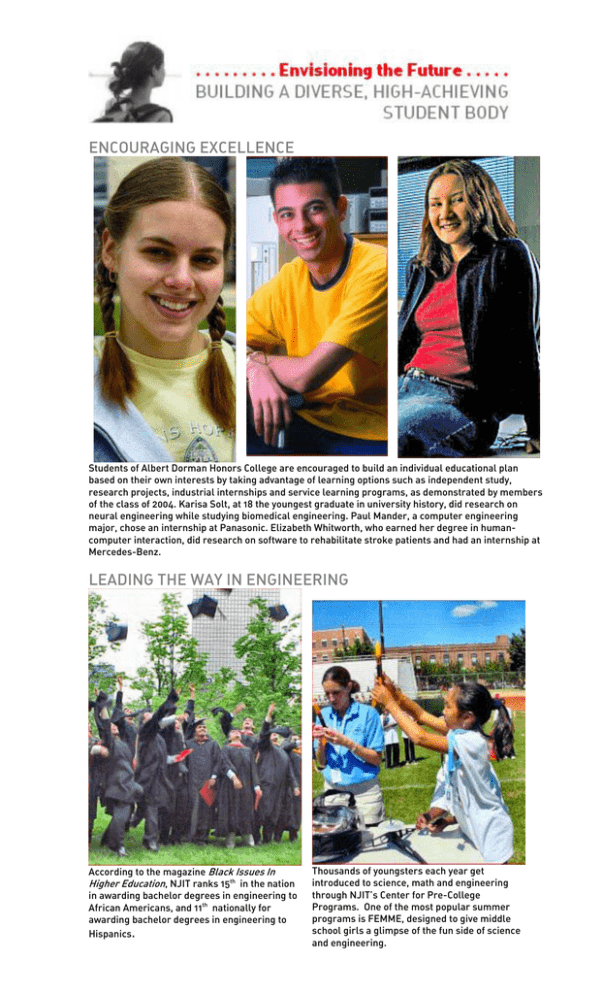ENCOURAGING EXCELLENCE
advertisement

ENCOURAGING EXCELLENCE Students of Albert Dorman Honors College are encouraged to build an individual educational plan based on their own interests by taking advantage of learning options such as independent study, research projects, industrial internships and service learning programs, as demonstrated by members of the class of 2004. Karisa Solt, at 18 the youngest graduate in university history, did research on neural engineering while studying biomedical engineering. Paul Mander, a computer engineering major, chose an internship at Panasonic. Elizabeth Whitworth, who earned her degree in humancomputer interaction, did research on software to rehabilitate stroke patients and had an internship at Mercedes-Benz. LEADING THE WAY IN ENGINEERING According to the magazine Black Issues In Higher Education, NJIT ranks 15th in the nation in awarding bachelor degrees in engineering to African Americans, and 11th nationally for awarding bachelor degrees in engineering to Hispanics. Thousands of youngsters each year get introduced to science, math and engineering through NJIT’s Center for Pre-College Programs. One of the most popular summer programs is FEMME, designed to give middle school girls a glimpse of the fun side of science and engineering. EXPANDING HONORS A new lounge, computer center and project room are among the special facilities available to honors students in their new East Building location. Since opening a decade ago, the honors college has been expanding rapidly and plans call for another ten percent increase over the next five years. SUPPORTING SUCCESS NJIT's Educational Opportunity Program offers students from underserved groups and educationally disadvantaged backgrounds academic and financial support, and career and personal counseling. Jennifer Dorn needed EOP’s support – the schools she attended did not prepare her to deal with the rigorous engineering curriculum. Last May, she graduated from NJIT at the top of her class, earning a double major - math and computer science – and a cumulative grade point average of 3.862. She is also a Bill Gates Millennium Scholar. Dawn Bennett, who completed her PhD in mechanical engineering in January 2004, was the recipient of the recipient of an NSFsupported MAGNET grant (Minority Access and Graduate Networking) and served an internship at Sandia National Laboratories the government facility charged with developing technologies to support national security, where she worked as part of a team to test electro-microfluidics as a means of detecting harmful biological agents. was awarded an Emerald Honor for Student Leadership, which celebrates the contributions of minority women in research science and technology.


